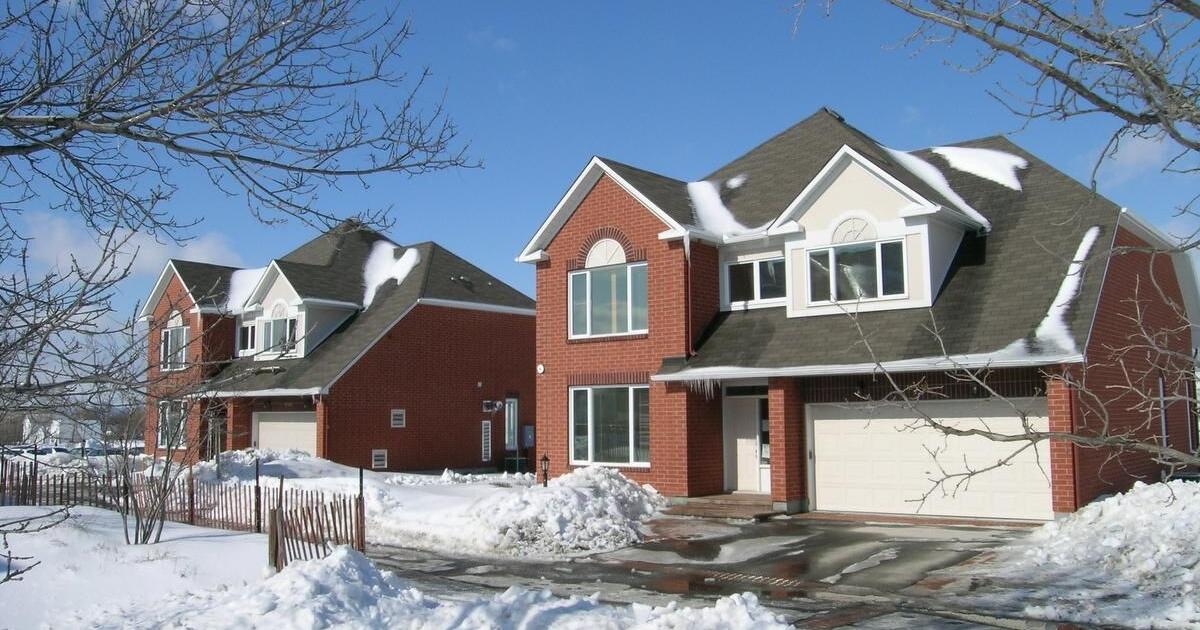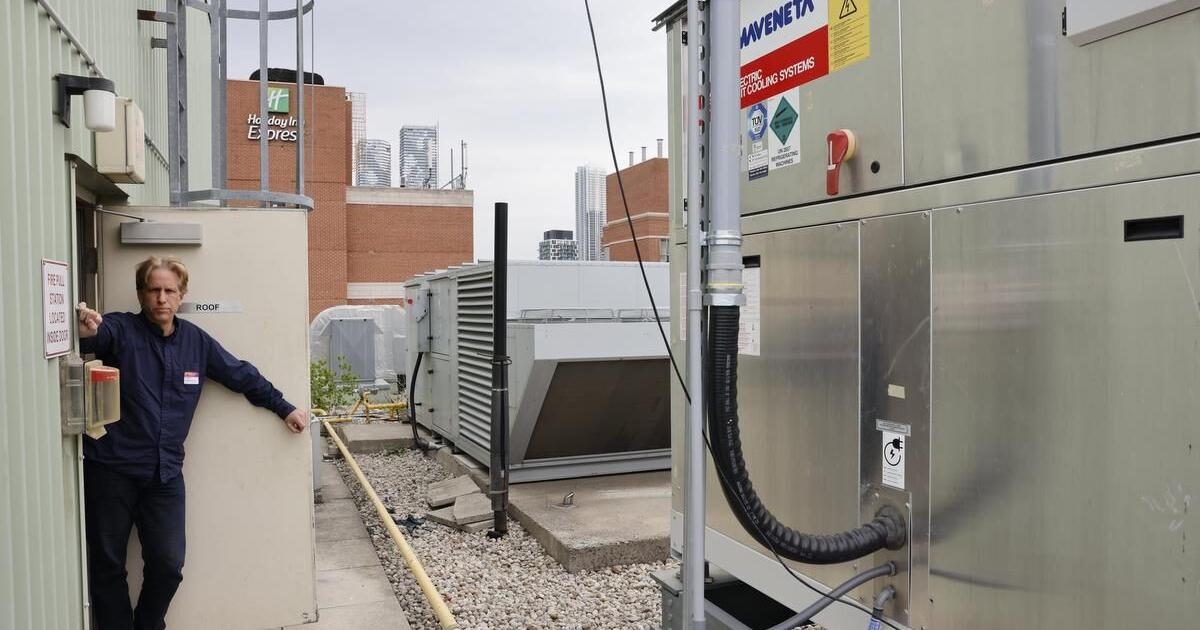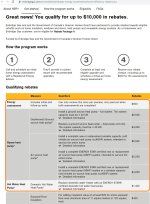POWERMAN
Well-known member
I suspected this may have already been mentioned somewhere - sure enough the keywords popped up in a recent thread:
Didnt want to derail the other thread - figured I'd ask here to see what general consensus was on this topic. I was looking to get my entire HVAC unit replaced along with a new tankless water heater and came across the following comments from @Bobo , @Lash and @Mad Mike :
I got a quote from a few places and on paper the heat pump setup looks super appealing - especially since some of the units come with 18+ seer ratings (e.g. Daikin, Carrier, GoodMan etc ). To be honest I thought they were blowing smoke up my ass when they said the heat pumps can extract heat from the cold winter air in order to heat a home lol.
The links @Bobo mentioned were helpful as well:

 www.thestar.com
www.thestar.com

 www.thestar.com
www.thestar.com

 www.thestar.com
www.thestar.com
Granted - it is a bit strange how there were three articles about this topic in the span of a month and a half....!
However my biggest concern was the electricity usage year round. Reliance mentioned that the newer heat pump unit integrate into the furnace and have a dual fuel source setup i.e. it functions as an air-to-air heat pump down to around -10C after which it switches over to the gas supply using the furnace as a backup to heat the home. However with the ever increasing price of natural gas and the carbon tax pricing on top of that, this heat pump setup seems to be more appealing.
That aside, I'm wondering what are the odds of the cost of heating/cooling with electricity far outpacing the cost of natural gas on an annual basis.

Long story short, how many of you use air-to-air heatpumps at your place of residence? Has it been reliable with no icing/freezing up during winter (since the unit sits outdoors 24/7) For those of you that do, are you happy with the performance during winter and summer? And are you seeing savings overall when you compare your electricity and natural gas use vs when you didn't have a heat pump in place?
What did you do in your garage today..?
I think the lift is the best motorcycle related money I have ever spent!
www.gtamotorcycle.com
Didnt want to derail the other thread - figured I'd ask here to see what general consensus was on this topic. I was looking to get my entire HVAC unit replaced along with a new tankless water heater and came across the following comments from @Bobo , @Lash and @Mad Mike :
There’s a 2 page article on heat pumps in today’s Toronto Star. New heat pumps are actually outselling new furnaces in the U.S but Canada is way behind. Apparently the newer ones work in cold climates and are becoming feasible due to soaring natural gas prices.
Someone on here suggested a heat pump/ac unit from Sennville. Checked with my hvac guy and he raved about them.
Heat pumps as a sole heating supply are not viable for most of Canada as their heating efficiency drops with the temperature. You might be OK in lower BC, but even the warmest parts of Ontario require supplemental heat for an air source heat pump for sub -10 days (actual or windchill). I have 2 little rental houses in Porcupine, both are about 900sq' bungalows. I reno'd one and put in a new 2 ton Senville 2 head HVAC unit it replaced a 45,000BTU Williams gas heater.
Last year gas cost was $1500 for the year (heat only) for each place -- they are pretty equal. Electricity for this heat pump house was $2400 this winter -- $1500 for the gas house. I did a fist pump in Oct and Nov as the heat pump was saving about 1/2 on gas -- then wham! Dec thru Mid march it got too cold and he heat pump wouldn't make heat, the resistance heater kicked in and it's up to 4x costlier to run. $400 for Dec and March, $800/mo for Jan and Feb.
In the GTA it wouldn't be that drastic, but I'm guessing the heat pump and gas would cost about the same to run. The big decision comes around supplemental heat... fireplace? resistance coils? leave old gas furnace in place?
I'm going to find out soon, I'm replacing resistance heating with a minisplit heat/AC pump into the garage at my house. It cost about $1000 to heat this winter (500sq' upstairs maintained at 18C, 900sq' downstairs heated only when I was in there (8 hrs/week). I'll report the cost this time next year.
I got a quote from a few places and on paper the heat pump setup looks super appealing - especially since some of the units come with 18+ seer ratings (e.g. Daikin, Carrier, GoodMan etc ). To be honest I thought they were blowing smoke up my ass when they said the heat pumps can extract heat from the cold winter air in order to heat a home lol.
The links @Bobo mentioned were helpful as well:

Canada News - National Canadian News | The Star
The most compelling stories from across Canada. Read national news coverage on thestar.com.

Decarbonizing home heating means looking at all options
In a paper Pollution Probe published, we argued we need to look beyond electrification. District heating, which is already used in Toronto, is one.

How a downtown Toronto condo defied the odds to save energy and money
Large-scale heat pumps at first presented a huge logistical challenge. “Everything that could go wrong did go wrong … but we solved those problems.”
Granted - it is a bit strange how there were three articles about this topic in the span of a month and a half....!
However my biggest concern was the electricity usage year round. Reliance mentioned that the newer heat pump unit integrate into the furnace and have a dual fuel source setup i.e. it functions as an air-to-air heat pump down to around -10C after which it switches over to the gas supply using the furnace as a backup to heat the home. However with the ever increasing price of natural gas and the carbon tax pricing on top of that, this heat pump setup seems to be more appealing.
That aside, I'm wondering what are the odds of the cost of heating/cooling with electricity far outpacing the cost of natural gas on an annual basis.

Long story short, how many of you use air-to-air heatpumps at your place of residence? Has it been reliable with no icing/freezing up during winter (since the unit sits outdoors 24/7) For those of you that do, are you happy with the performance during winter and summer? And are you seeing savings overall when you compare your electricity and natural gas use vs when you didn't have a heat pump in place?






















